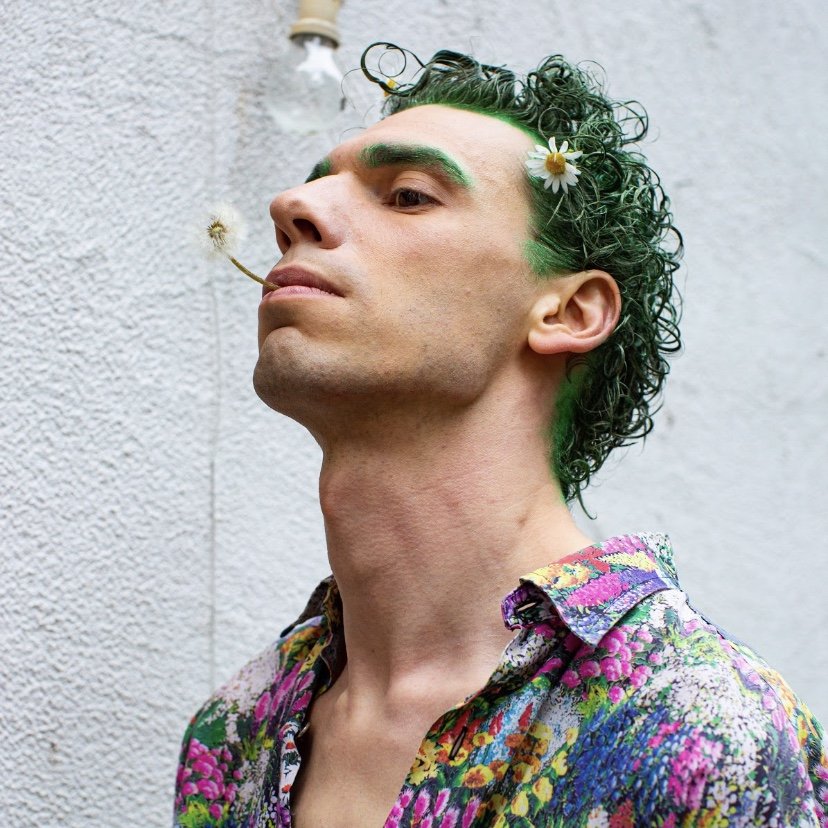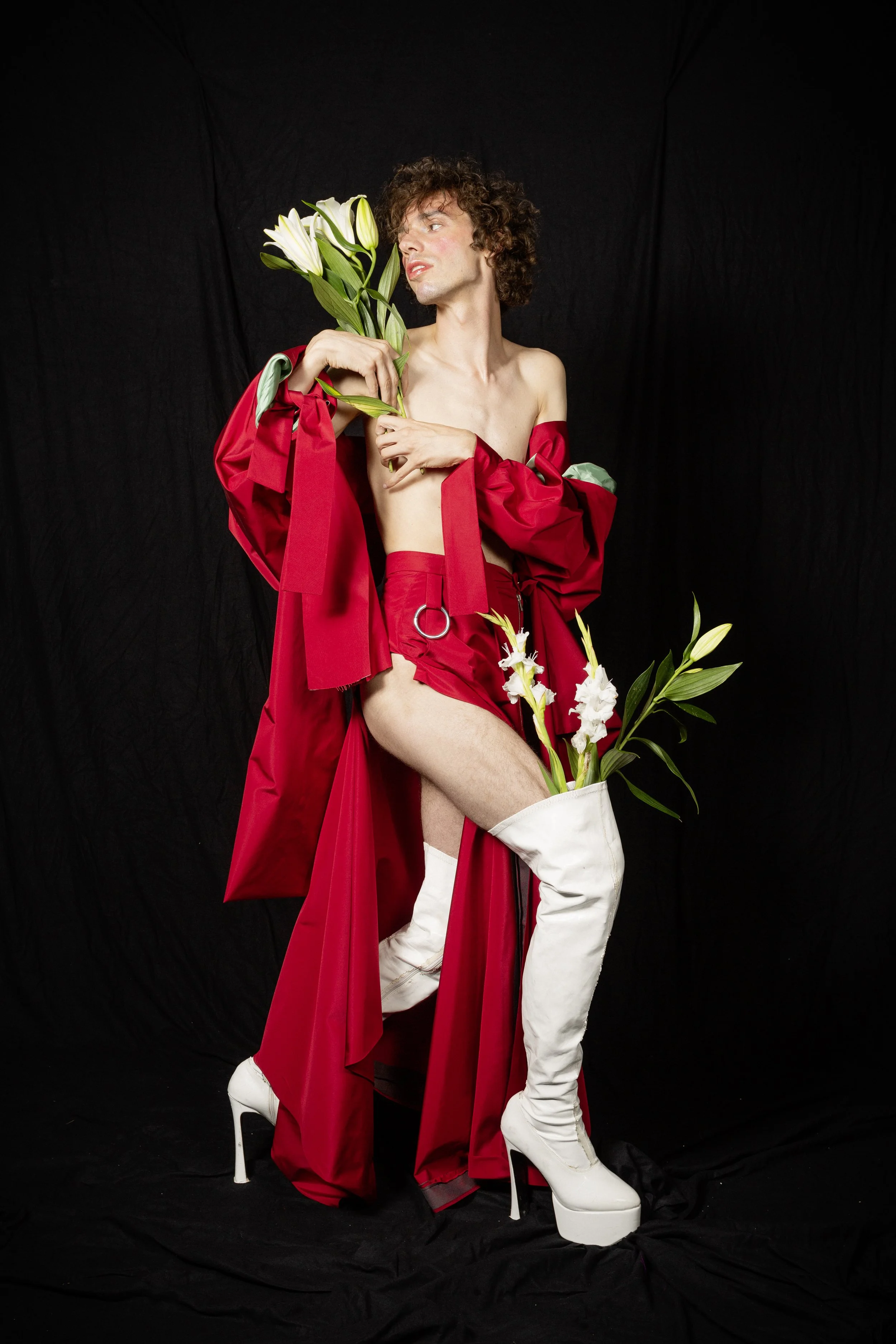Jon Darc
Jon Darc creates an emotive musical universe inspired by BJÖRK’s free creativity, ARCA’s performance art based shows, WOODKID’s rampant sadness, FKA TWIGS sad sexiness, SEGA BODEGA’s mystical gloom, SOPHIE's shy loudness, DORIAN ELECTRA’s camp glamour and LADY GAGA’s extravagant sense of pop culture.
Love and loss, the club, social criticism and LGBTQIA+ topics merge in their songs spreading a dark spirit of desire, equality and deliverance. Their shows intertwine diverse art genres to create transmedial performances uniting avant-garde fashion, design and visuals for a hot and juicy concert experience.
Jon played gigs across Germany in cities like Mannheim, Stuttgart, Hamburg, Hannover, Berlin and performed on fashion shows in Bremen and Berlin as well as different sized gigs with other band projects. They work with producers and artists like Mona Jim, Moritz Hofbauer, Lucy Dye, Jimi Joel, Alec Troniq and Bernhard Range.
Their performance duo Frisch&Schick is touring with their concert performance installation hands on aids that premiered at Club Lehmann Stuttgart. Jon’s passion for theatre brings them on the stages of houses like Schauspiel Hannover, Schauspielhaus Graz, Schaubühne Berlin, Thalia Theater Hamburg, Maxim Gorki Theater Berlin, Schauspielhaus Wien, and many other theatres, as well as theatres across Europe as an actor and live musician.

Daniel Tahirovic
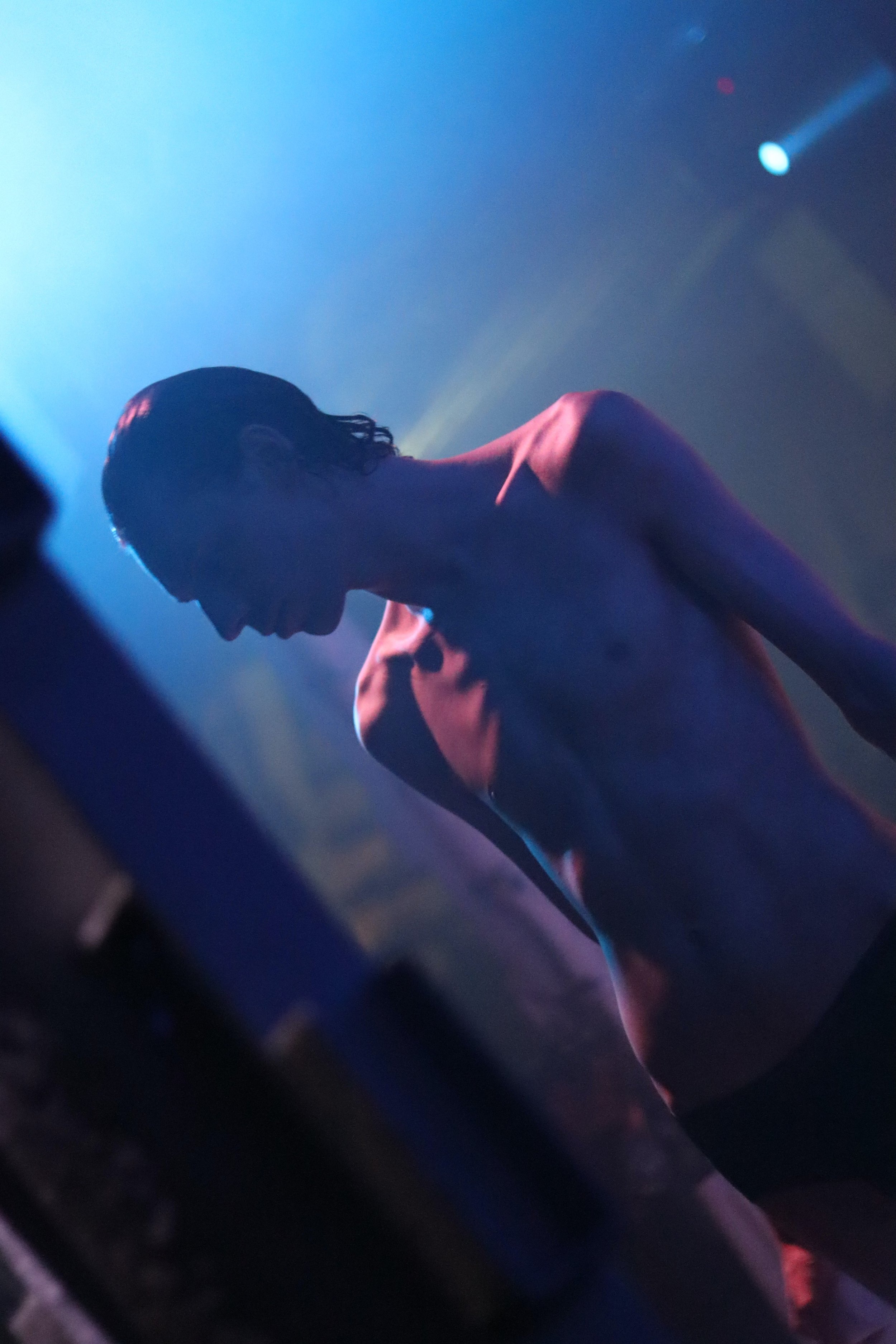
Daniel Tahirovic

Uwe Schröder
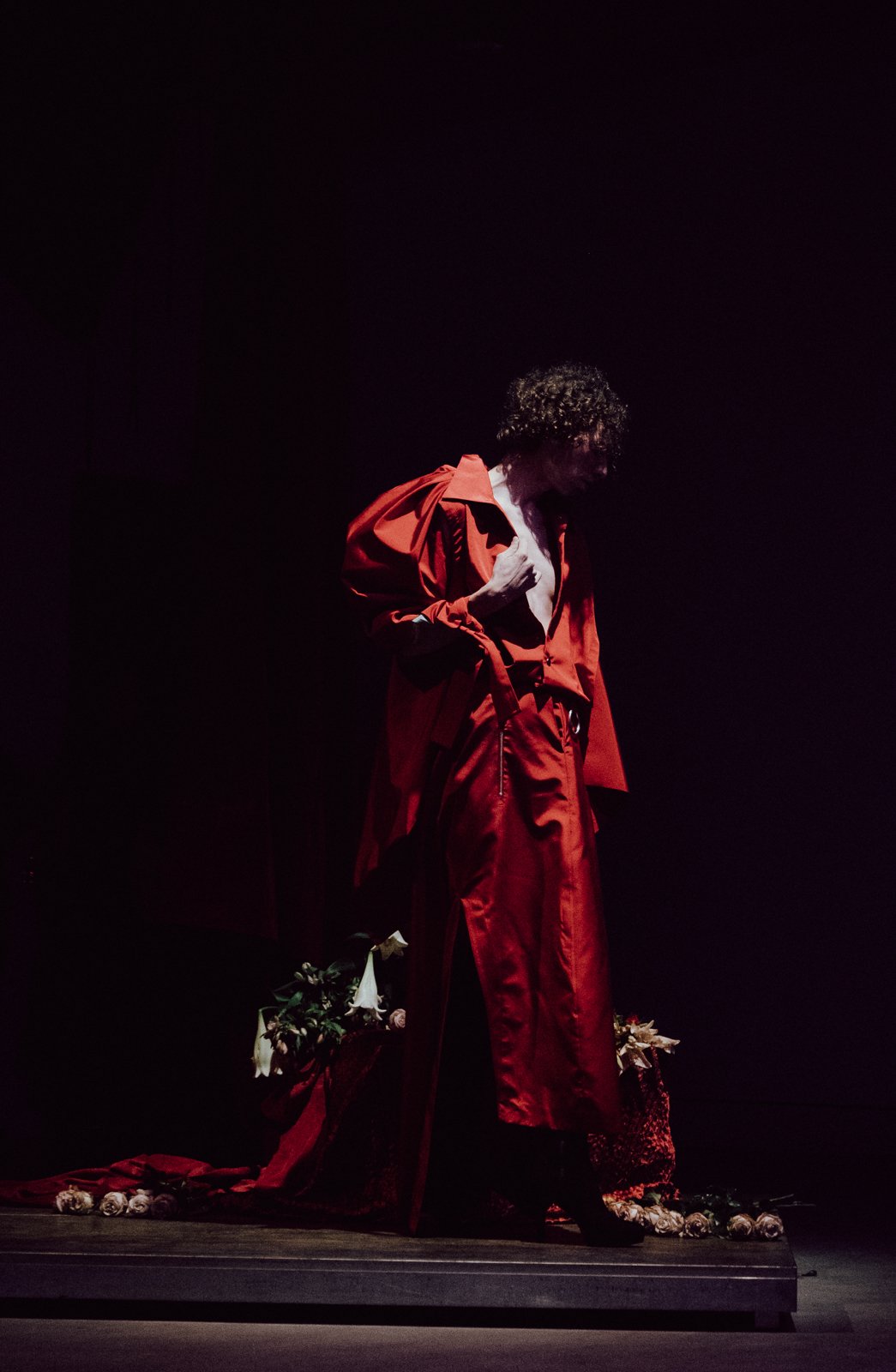
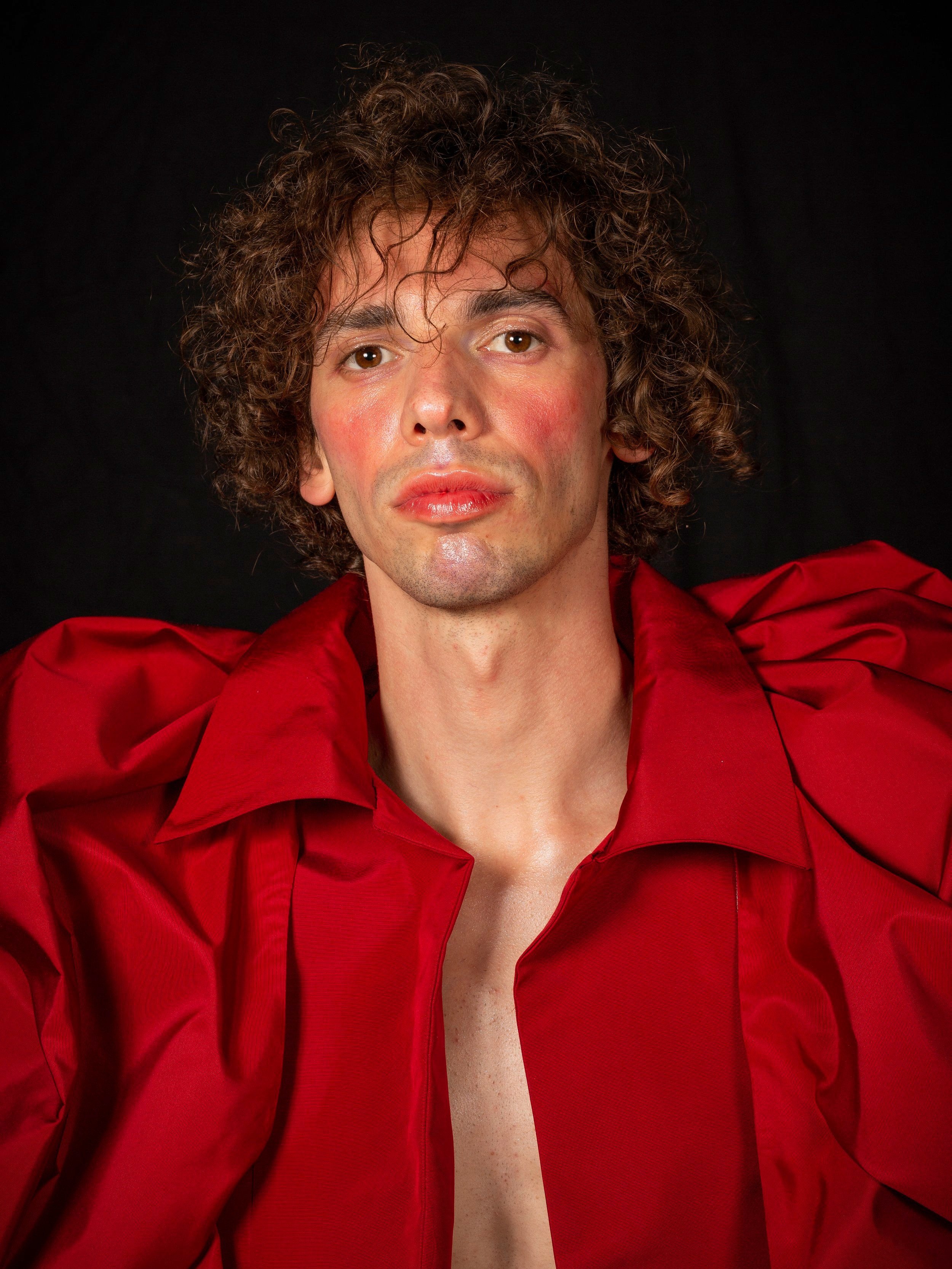
Michel Iffinger
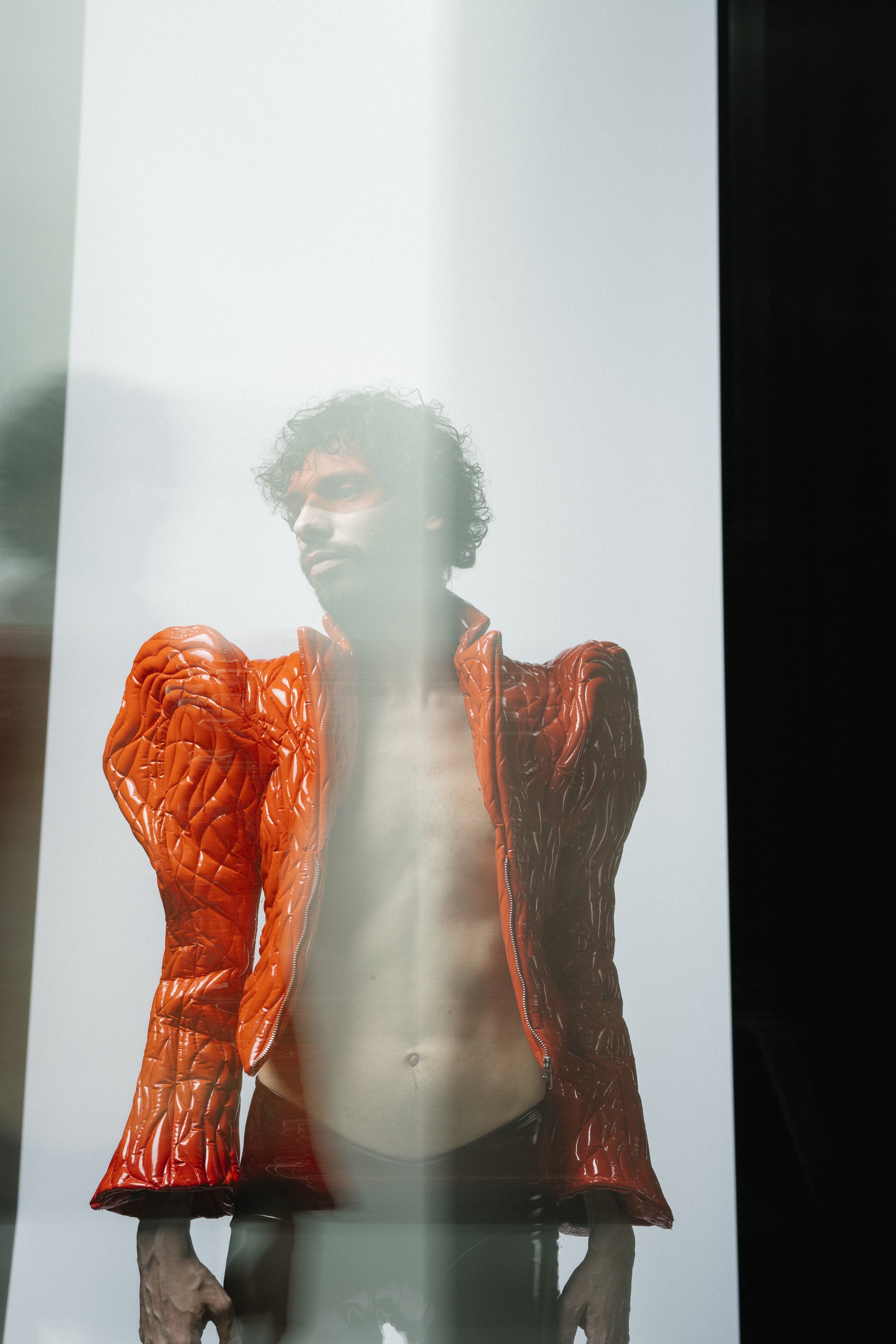
Milena Zara
In Conversation
Q: You're a performer, a poet, actor, singer (to name a few) and an all around creative. What inspired you on your artistic journey?
JD: My parents nurtured a lot of my artistic side and the muse within me. I was a really shy child so my mother enrolled meto a drama school for children. In the beginning I would attend once a week and then towards the end shortly before my school graduation I was there three days a week. I decided to become an actor, and auditioned for drama schools. The first year I auditioned, I didn't find a place. So, I auditioned for theatre year at Schauspielhaus Zurich, an internship, which incorporated a acting in several pieces at Schauspielhaus Zurich. Afterwards I did drama education and Zurich and Ludwigsbrug.
Q: Amazing to hear how supportive your parents were especially to nurture that artistic side of you. And I know, a lot of queer artists have really struggled to get support from their family. And so it's amazing to see the other side of that.
JD: Well, you know, as long as my art wasn’t queer, they didn't mind. But I think that to the rest of my family, my artistic developement created a void or a certain level of misunderstanding. They don't really get what I do. They don't like it but that's fine.
Q: Talking about your new EP “Flood of the Material” if you could speak about the inspiration behind it and your experiences with collaborating with Alec Tronic and your thought process and your creative process behind it.
JD: So Alec made a remix of of my earlier single ‘The Womb.’ And I really liked it. I really felt that he created something completely new, but kept the substance of the original track and that really impressed me. We decided to make an EP together. I sent him a couple of demos. A lot of material came from theatre pieces that I wrote music for.
Q: When you're starting a new project do you go into it knowing exactly what you want, like this perfect vision? Or do you let it kind of unfold as it's growing?
JD: It's a little bit of both, I think, because as a producer, I don’t like working alone. I always like people to co-produce because I get so much in my head that I'm like, No, but I'm really looking for this specific sound. That can be difficult to find at times. So I really enjoy having another creative mind around to to be able to reflect together. Alone my love for conceptual work can gat me a bit to much stuck in my head.
For my upcoming EP ‚Cross‘, I worked with Mona Jim, Moritz Hofbauer, Jimi Joel, Ophelia Sullivan and Bernhard Range and created six Tracks that reflect my Christian upbringing.
Q: Can you talk me through what your conceptual process might look like?
JD: For me the perfect creative experience is when I really get into a flow and this can be either I start with a musical idea or withsome kind of text appears. For example, because of a really interesting experience or something in the news was really shocking or made me feel like, I have to address this. Also it can be something that I feel is inside that needs to get out. I just sit and writing, in creative flow is the most beautiful experience. I used to write a lot of poetry in the form of a diary when I was in drama school and so it's easy to just find colorful images. But if it's not in this flow, then sometimes it feels like: ‘Ah, yeah, but Is it good enough? I'm not sure. Okay, let's dig deeper.‘ Flow is usually a good way to start a strong concept for me. When the idea is very strong the rest of the concept usually magically appears around it. But I’m also a big fan of involving other artists and opinions of people I trust because working alone can also get you hung up on an idea and different ways of thinking can prevent that.
Q: Yeah, that's great. And that kind of leads me to my next question, because I know you are interested also in the activism side and addressing different social issues that especially relate to gender identity or inequalities to name a few. So how important do you think it is to have this political point of view in your work?
JD: I think it's the only possible way. Because this political mindset is at the core of my art. And without it, I would probably make something completely different. I'm a little bit shy so it’s difficult for me to speak on social media and make stories or other political content that is based on acts of speaking. So creating songs or art pieces is my way of making these political statements.
Q: What advice would you have to young queer artists, who might be trying to navigate their own identity, or their own career and in the artistic world?
JD: Don't give up. Because it's not easy. AndI think you have to be maybe a little bit of a masochist in some kind of way to be able to stand through all the other difficult times in your life, whether it's because people don't want to listen to you, because they have a different opinion, or people discriminate you because they're narrow minded, or you don't have enough money to finance your projects. But don't give up. It's worth it.
Q: Yeah, that's beautiful. I think that's the most important thing, just that persistence, and through all those struggles to just use all that and transmute that energy in your work.
JD: Yeah, and work on things that make you thrive. Because, like I said,of course if you need money, you will, do things that you just do for the money, and that's fine. And most of the times, that's where you can make the real money. But for me, this is just something that I stand through. And I'm looking forward to create things that make me want to live and that feed my creativity and enthusiasm.
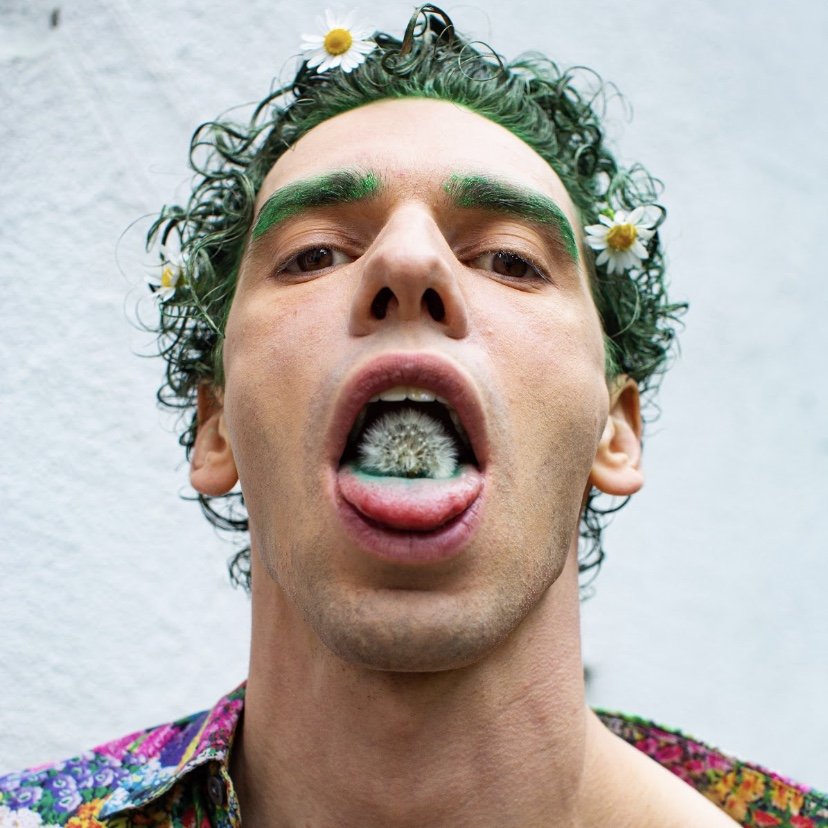
Joe Pohl
